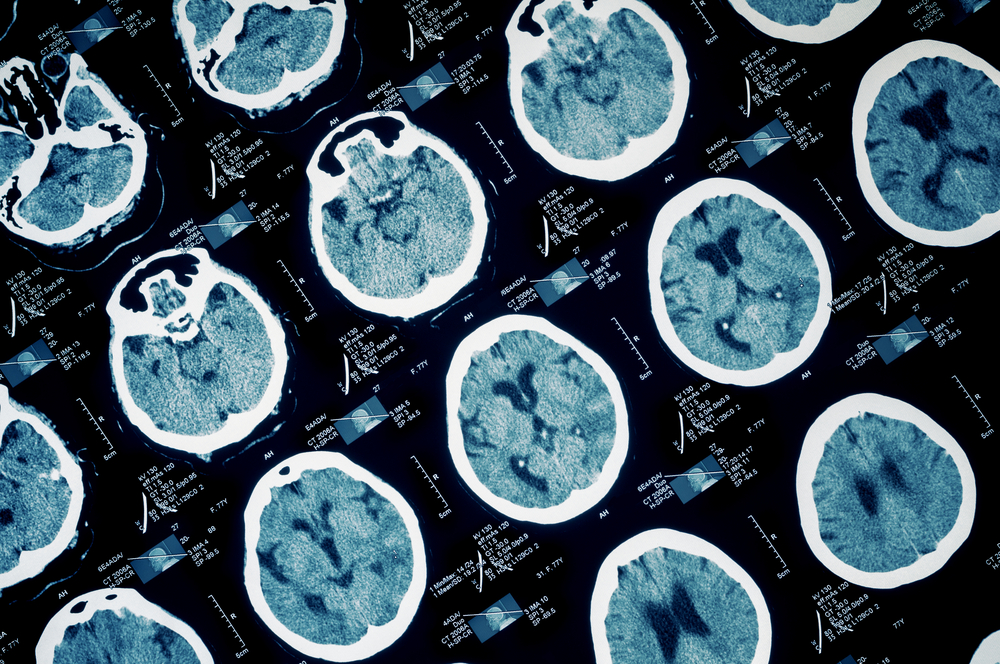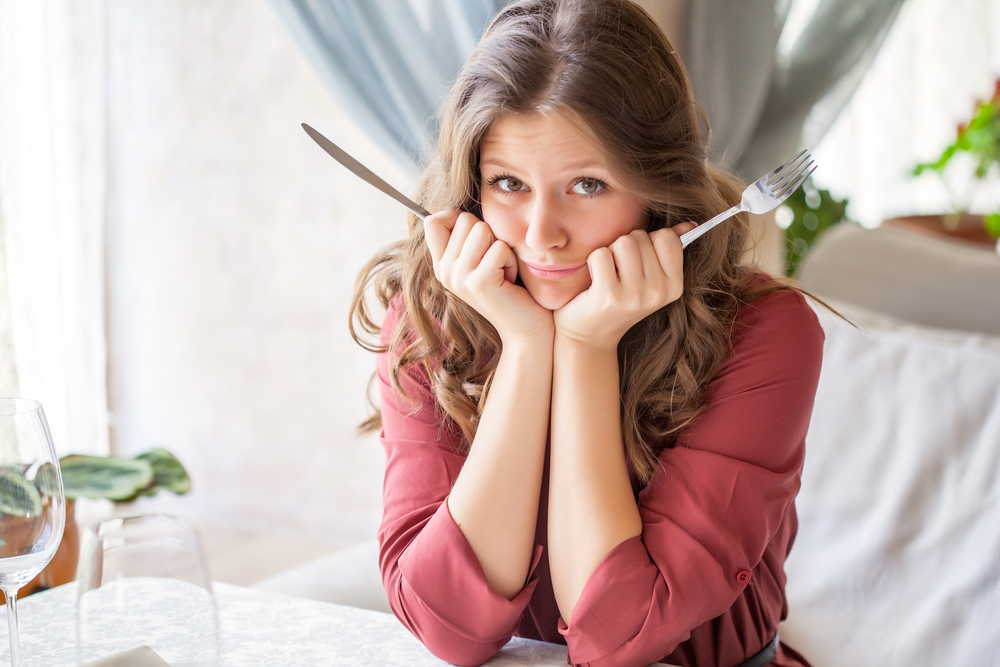You settle in at your desk after a particularly stressful meeting but suddenly feel compelled to get back up, walk around, and…grab a donut. You try to stop yourself by staying at your desk or just continuing to walk past the snacks. You may even think you’ve succeeded for a minute, but that nagging feeling returns.
You sigh. You give in, and for a little while, that rush of dopamine you got from the candy makes you feel better. Then you feel worse because you caved, but you don’t know how to stop emotional eating.
Could you be addicted to food?
The Science Behind Food Addiction
If you feel like you’ll never be able to control yourself around certain comfort foods (they’re different for everyone but usually share a few commonalities), because you lack the willpower, I have three bits of good information for you:
- It’s not that you lack willpower.
- There’s science involved.
- You can stop it.
Really, you can.
But first you have to understand what’s going on in your body—and in your brain—when the urge to eat unhealthy foods, especially in large quantities, sets in. And you have to get to the root of the emotions that are playing off of your addiction.
When you search your soul and stay mindful and prepared, you set yourself up for success in kicking your food addiction and emotional eating habits.
What Happens When You Get What You Want: Giving in to Addiction
As with just about any kind of addiction, your brain gets a shock of feel-good dopamine when you eat what you’re craving. You may feel nearly euphoric (thanks to the opioid production that can accompany high levels of fat or sugar intake), for a minute once you finally give in, but the feeling doesn’t last.
You’ve probably experienced something similar (don’t worry, I’m not saying you’re addicted to food if you have!), before. Everyone has cravings. You know the feeling you get when you finally satisfy that craving? Imagine that, amplified and much more difficult to satiate.
I found a study that suggests food addiction works in the same way as drug or alcohol addiction. Not only do certain foods seem irresistible and make you feel good for a minute, but it takes more and more of them over time to satiate your craving. That’s why you may not be able to stop at one cookie, one slice of pizza, or a single handful of chips.
The Link Between Food Addiction and Obesity
Sadly, nobody’s craving massive amounts of kale or carrots when they’re dealing with emotional eating or food addiction. It’s always the salty, sweet, or fatty foods that aren’t good for you. These are often referred to as “highly palatable foods.”
(I find the term kind of funny since I think fruits, veggies, nuts, and grains are highly palatable. Don’t you?)
Sometimes—but not always—food addiction results in obesity because of the types of food usually involved, which can then lead to additional health problems. You don’t have to be obese to suffer from food addiction. And if you’re carrying around some extra pounds on your frame, that doesn’t necessarily mean you’re addicted to food.
Signs that You May Be Addicted to Food
Food addiction goes beyond the occasional craving that you sometimes satisfy. Here are some clues that you may be addicted:
- Once you satisfy the craving, you still want to eat more.
- You find yourself needing more and more of the food to satisfy the craving.
- Your eating habits are getting in the way of your health, your weight loss goals, your relationships, or any other aspect of your life.
- You find yourself eating when you’re not even hungry.
- When you try to control your eating habits, you find it extremely challenging.
- You feel anxious or irritable when you try to cut certain foods from your diet.
- You eat to affect your mood, not just satiate your hunger.
- Your eating habits make you feel bad about yourself.
For an in-depth look at food addiction and more help determining if you suffer from it, you can take a look at Yale’s Food Addiction Scale.
What Does That Have to Do with Emotional Eating?
For starters, there’s a whole lot of emotion involved in food addiction! Yes, there are the cravings that seem to be almost physical, but there’s probably a nagging feeling that sets off a binge (it can happen with other types of addiction, too). Maybe you can pinpoint it at the time, maybe you can’t.
Food addiction and emotional eating can feel a little like an endless cycle at times.
There’s anxiety around not eating the foods you want. You eat them. You feel depressed, guilty, or you hate yourself for giving in. That creates a whole new round of negative emotions and guess what? You want to eat more to soothe them. Vicious, right?
The physical body and the mind are linked together, so it’s no wonder that the physical act of eating can sometimes become a way of dealing with the troubles on your mind.
You can break the cycle.
Your mind and body will still be linked, of course, but they’ll both become fresher and lighter. You know how the Beauty Detox books talk about your digestive system getting all gunked up from toxins? Similar situation here—in your mind.
Yes, it’s hard at first, but: It. Is. Possible.
Keep in mind that just because you give in to emotional eating sometimes, that doesn’t mean you’re addicted to food. The tips I’ll share in a minute will help you avoid emotional eating, too, though, so even if you’ve decided you’re not addicted per se, keep reading.
How to Avoid Emotional Eating
Avoiding emotional eating takes mindfulness and preparation.
Recognize It When It Shows Up
Physical hunger and emotional hunger are two very different thing. When you’re physically hungry, it doesn’t matter if it’s a kale salad or a piece of pizza. You just want to eat something to get the gnawing in your stomach to go away. Emotional eating (and food addiction), usually revolves around something a little more specific than that.
Are you really hungry?
You can ask yourself this before you reach for a comfort food or before you reach for the next round of whatever it is you’re eating (so you caved and had a donut…tell yourself you satisfied the craving and then move into one of the other methods for fighting emotional eating, like distraction or writing in a journal). If you’re very specific about what you want (like another donut), it’s probably not physical hunger.
Come up with Healthy Alternatives Before the Urge Strikes
Success relies on planning.
Sweet tooth? Try these recipes. See which one’s your favorite and then make sure you always have them around (or at least the ingredients you need):
Keep some of these in the freezer or fridge so they’re nearby when you want to eat and you want something sweet. Though desserts should still be enjoyed in moderation, at least this way you’re getting whole foods, not unhealthy ingredients from processed foods.
If you tend to go for savory snacks or fatty ones instead, try:
- A healthy avocado recipe (good fats!)
- Raw chickpea-less hummus with veggies
- Macadamia Nut and Sundried Tomato Mash
Distract Yourself
At Work:
A short walk may not be your thing. I know on a limited level, when I really wanted to eat some of the sweets in the office, a quick walk through the building wasn’t enough. If anything, I might have found myself walking toward the candy bucket. It works for some people, but it was never enough for me.
Granted, at work you’re probably kind of limited on options, but if you have a little bit of freedom to come and go as you like (to a degree), try taking a five to ten minute walk outside in the sunshine. Get on Pinterest (set a timer!) or watch YouTube videos.
Even a few deep breaths, eyes closed, may do the trick (put on some headphones or go hide in the bathroom if your desk area’s not quiet enough). Emotional eating is inspired by stress, and if you can learn to manage that stress, you’re so much closer to avoiding that junk food you really don’t want to eat.
If the treats you’re craving aren’t in the break room, you could go in there and make yourself a cup of tea. Keep a few bags of your favorite flavor at your desk.
At Home:
At home, you have a number of options:
- Walk the dog.
- Look up fitness classes you can take and have a list somewhere in your house so you can easily get up and attend one you love if it’s available at the time.
- Do a quick yoga sequence (Kim has some on YouTube!).
- Write, even if it’s just a note to someone you love.
- Call a friend.
- Clean a room in your house.
- Dance out the stress with your favorite music blasting.
- Meditate.
- Take a nap.
Dive into Your Feelings with a Journal
I don’t suffer from food addiction, but I have been overcome by occasional bouts of emotional eating in the past. I know the guilt and general feeling of, “What just happened and why did I do that?” that replace those good feelings that the dopamine provides.
Journaling is your best friend. You may be feeling a little skeptical. I was. I thought I didn’t have time. I thought I wouldn’t learn anything I didn’t already know. After all, it was all in my head already, right?
Sometimes you have to write things down to see what you really think or feel, though. Have you ever tried to knit or crochet? Tug on that one string and you begin to unravel the skein and turn it into something usable. Try to use the whole skein at once and you get nowhere.
Writing is like that. You’re forced to take a little at a time and digest it. Then comes the next bit, and you’re able to work through whatever is bothering you in much more manageable pieces.
It’s also like talking to a friend without having to unload on someone else (I know some people don’t like to do that, and if you’re not even sure what’s bothering you, it may be intimidating to just start talking with an actual person).
Journaling is private, it’s cheap, and it’s totally worth it. It also doesn’t hinder your weight loss or health goals.
Think you don’t have time to sit down and write? Think about what you would be doing instead. Would you be in front of the television with a box of cookies or ice cream? Even one show is 30 minutes and that’s plenty of time to get a good start.
The goal is to get to the core cause of the emotions that are making you want to eat unhealthy things, especially when you’re not even hungry.
Tiny Buddha has amazing tips for using a journal to heal and thrive. Too Much on Her Plate takes a slightly different approach and talks about using a food journal not to record every little bite you eat, but how you feel before, during, and after eating.
You Won’t Be Perfect Overnight, and That Is Okay!
Anything worth doing takes thought, mindfulness, dedication, and work. Learning how to stop emotional eating and take your life and health back into your own hands is no exception. You won’t be perfect overnight. Don’t expect to be. It’s okay.
We’re all works in progress. If we’re not dealing with food addiction and emotional eating, it’s something else. Maybe it’s stress. Maybe it’s staying mindful and present at all (or most) times. No one is perfect, but we can all strive to become our best selves.
Love yourself. Appreciate yourself. Accept yourself, whether you’ve successfully avoided a prime emotional eating opportunity or you had a slip-up. Vow to continue with your goals no matter what, and it will get easier.
Do you suffer from food addiction or emotional eating? Do you have any tips of your own to share? If not, which of the tips above do you think you’ll be trying soon?
In love and health,
Kimberly







Kim,
Just a quick note to thank you for this article (and all other articles), but this one in particular. I have struggled with alcohol addiction for about 5 years now (probably longer), and through counseling have realized that this probably stemmed from unhealthy eating habits in my late teens/early twenties (food addiction, eating disorder, bulimia/anorexia/unhealthy exercise… you name it). I guess I have one of those “addictive” brains that is prone to overdo it on just about everything enjoyable to me (and sometimes things that become the opposite of enjoyable). The suggestions you have provided in this post are invaluable. You can tell you have done your research (as usual) and gone to the experts! The scientific evidence on the effects (of addiction) on the brain are fascinating (to me at least). I have bookmarked “Tiny Buddha,” and “Too Much on Her Plate,” because I have never really journaled, but know this would be a helpful exercise, (maybe even enjoyable, I hope). Please keep your warmth and wonderful insight coming to all of us in your writing, podcasts and videos. At times of utter discouragement and frustration, you provide so much needed HOPE. Thank you for that.
With appreciation ~Shelby
Shelby,
I have the same brain and although this was a good article I tried everything on there and I come back to my addiction every teo three days :(… I am vegan and eat very healthy I quit eating sweets many years ago but now when I have some of it even when I am not hungry or need that I cannot stop at just one or two I start eating till I fall, the next day I have very bad hangover, feel disgusted not sure how to handle that :(
I do a lot of that stuff… the only thing I haven’t tried is eating more carbohydrates from yams, carrots, and patatoes. Cuz I don’t have my own kitchen. But for the carrots, I always forget for some reason. But I really like yams when they cool down. I think that will work… I just need to get started, cuzz I eat too much animal protien.
I am vegan and eat super healthy, but lately I have been eating and craving more and more sweets and bad foods, once I start to have something healthy just a little of the sweet like almond butter I can’t stop and just start eating till I am sick, and then it comes dairy and fats, and more sweets next day my body is in shock I can’t walk straight and feel like I have a huge hangover, then I hate my self… and this happens every couple days where it comes back and comes back :(
I do the same thing. What is with the sweet salty ? I know carob is better than chocolate, but still when I am full I do not need more food. Why am I still addicted to food, actually sweets?
Kim, thank you for such good advice. I have lost 68 lbs eating healthy and exercising. I grow my own garden and fill it with many greens. I now weigh what I did in high school. 165 lbs. Who would have thought? I even run 5k and 10ks now. I feel great most days. Each day is its own battle and I refuse to be defined by one day’s loss. Stress builds up at times and I long for crunchy or salty but I try to defeat it. Thank you again.
Kim, thank you for such good advice. I have lost 68 lbs eating healthy and exercising. I grow my own garden and fill it with many greens. I now weigh what I did in high school. 165 lbs. Who would have thought? I even run 5k and 10ks now. I feel great most days. Each day is its own battle and I refuse to be defined by one day’s loss. Stress builds up at times and I long for crunchy or salty ( my food addiction) but I try to defeat it. I know it will sound odd, but two things I do when this happens is to either smell a peanut butter jar or make a coffee with raw cacao powder in. Maybe this will help others. Thanks again.
hi thanks for this!!
i have learnt recently to soul search and see what i really want with myself. i look at the reasons that make me eat faulty and replay the situation till i find out how else i could have handled it right. i listen to myself, whom iam, what i want and the ultimate effects of eating out of emotions. i figure myself in the future and see a better me if i address the issue. i hate being fat coz it makes me hate myself, being healthy allows me to be myself and who would love being limited by what they can address.i love myself and am gonna handle this. so if you want to make this a past just listen to yourself, meditate on what you want, get your self around people, love to exercise, stay with yourself, know what you want and act now coz you will never be happy unless you achieve this. of course all this pressure will go when you realize that all this makes you more comfortable!!! then again you feel yourself in this!!! just get your way forward.and get things done. don’t let stress, feelings and other external forces get into you.
Tito,
i have learnt that when you know yourself, what you want and let nothing stop you. look ahead for the results, focus on your way of doing it, learn to handle different situation in focus of the goal. its all possible and you won’t feel happy unless you achieve it coz its all part of you. tolerance is never an option, decide to live fully. there are people who can tolerate a few pounds or mindless eating but if you feel you cannot then why should you? get started and act on it as that’s when you will be comfortable and confident. listen to yourself and know yourself as this is never gonna change. you do not want things to be always playing back so look for progress and want to always move forward. then get an identity out of it. this is the happy you now. trust me its it works.